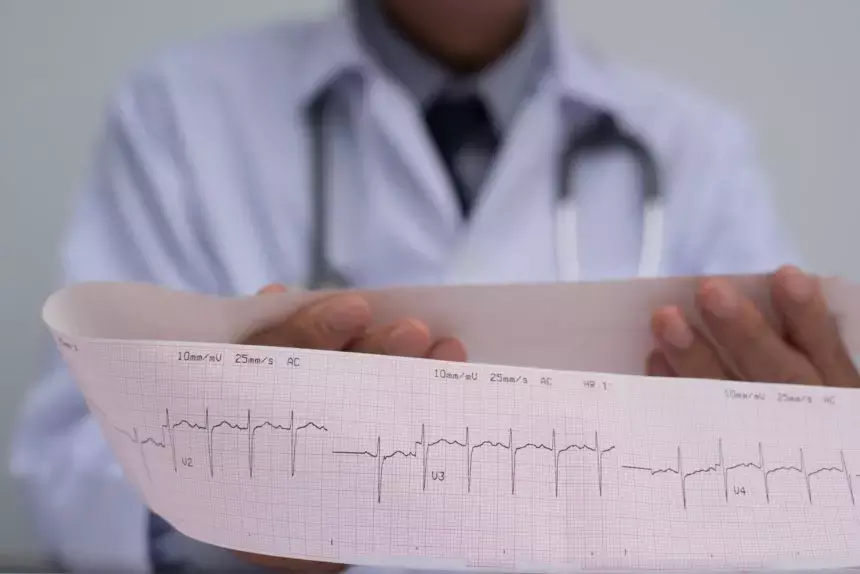- Home
- Medical news & Guidelines
- Anesthesiology
- Cardiology and CTVS
- Critical Care
- Dentistry
- Dermatology
- Diabetes and Endocrinology
- ENT
- Gastroenterology
- Medicine
- Nephrology
- Neurology
- Obstretics-Gynaecology
- Oncology
- Ophthalmology
- Orthopaedics
- Pediatrics-Neonatology
- Psychiatry
- Pulmonology
- Radiology
- Surgery
- Urology
- Laboratory Medicine
- Diet
- Nursing
- Paramedical
- Physiotherapy
- Health news
- Fact Check
- Bone Health Fact Check
- Brain Health Fact Check
- Cancer Related Fact Check
- Child Care Fact Check
- Dental and oral health fact check
- Diabetes and metabolic health fact check
- Diet and Nutrition Fact Check
- Eye and ENT Care Fact Check
- Fitness fact check
- Gut health fact check
- Heart health fact check
- Kidney health fact check
- Medical education fact check
- Men's health fact check
- Respiratory fact check
- Skin and hair care fact check
- Vaccine and Immunization fact check
- Women's health fact check
- AYUSH
- State News
- Andaman and Nicobar Islands
- Andhra Pradesh
- Arunachal Pradesh
- Assam
- Bihar
- Chandigarh
- Chattisgarh
- Dadra and Nagar Haveli
- Daman and Diu
- Delhi
- Goa
- Gujarat
- Haryana
- Himachal Pradesh
- Jammu & Kashmir
- Jharkhand
- Karnataka
- Kerala
- Ladakh
- Lakshadweep
- Madhya Pradesh
- Maharashtra
- Manipur
- Meghalaya
- Mizoram
- Nagaland
- Odisha
- Puducherry
- Punjab
- Rajasthan
- Sikkim
- Tamil Nadu
- Telangana
- Tripura
- Uttar Pradesh
- Uttrakhand
- West Bengal
- Medical Education
- Industry
ECG Abnormalities common in T2D patients even without history of CVD: Study

People with type 2 diabetes have a two-fold higher risk of cardiovascular disease (CVD) compared to the general population. In a recent study, researchers have found that ECG abnormalities are common in all people with type 2 diabetes (29.1%), including those without a history of CVD (24.0%). They also found that the prevalence of ECG abnormalities is related to traditional cardiovascular risk factors. The research has been published in the Journal of Diabetes and its Complication on 26 November 2020.
The American Diabetes Association and the joint European Society of Cardiology and European Association for the Study of Diabetes guidelines recommend a resting ECG in people with type 2 diabetes with hypertension or suspected cardiovascular disease (CVD). However, knowledge of the prevalence of ECG abnormalities is incomplete. Therefore, researchers of the Netherlands conducted a study to analyse the prevalence of ECG abnormalities and their cross-sectional associations with cardiovascular risk factors in people with type 2 diabetes.
The researchers used data collected from 8,068 patients with type 2 diabetes enrolled in the prospective Hoorn Diabetes Care System cohort, which enrolled patients newly diagnosed with type 2 diabetes in the West Friesland region of the Netherlands starting in 1996. They identified ECG abnormalities using the Minnesota Classification and categorised them into types of abnormalities. They calculated the prevalence for the total population (n = 8068) and the subgroup of people without a history of CVD (n = 6494) and used logistic regression models to assess cross-sectional associations.
Key findings of the study were:
• Upon analysis, they found nearly one-third of the total population had minor (16.0%) or major (13.1%) ECG abnormalities.
• Among participants without a CVD history, they found that about one-quarter had minor (14.9%) or major (9.1%) ECG abnormalities.
• Among those with hypertension or very high CVD risk, they noted that the prevalence was 27.5% and 39.6%, respectively.
• They also noted that the ECG abnormalities were significantly and consistently associated with established CVD risk factors.
The authors concluded, "Resting ECG abnormalities are common in all people with type 2 diabetes (29.1%), including those without a history of CVD (24.0%), and their prevalence is related to traditional cardiovascular risk factors such as older age, male sex, hypertension, lower HDL cholesterol, higher BMI, and smoking behaviour."
For further information:
Medical Dialogues Bureau consists of a team of passionate medical/scientific writers, led by doctors and healthcare researchers. Our team efforts to bring you updated and timely news about the important happenings of the medical and healthcare sector. Our editorial team can be reached at editorial@medicaldialogues.in.
Dr Kamal Kant Kohli-MBBS, DTCD- a chest specialist with more than 30 years of practice and a flair for writing clinical articles, Dr Kamal Kant Kohli joined Medical Dialogues as a Chief Editor of Medical News. Besides writing articles, as an editor, he proofreads and verifies all the medical content published on Medical Dialogues including those coming from journals, studies,medical conferences,guidelines etc. Email: drkohli@medicaldialogues.in. Contact no. 011-43720751


